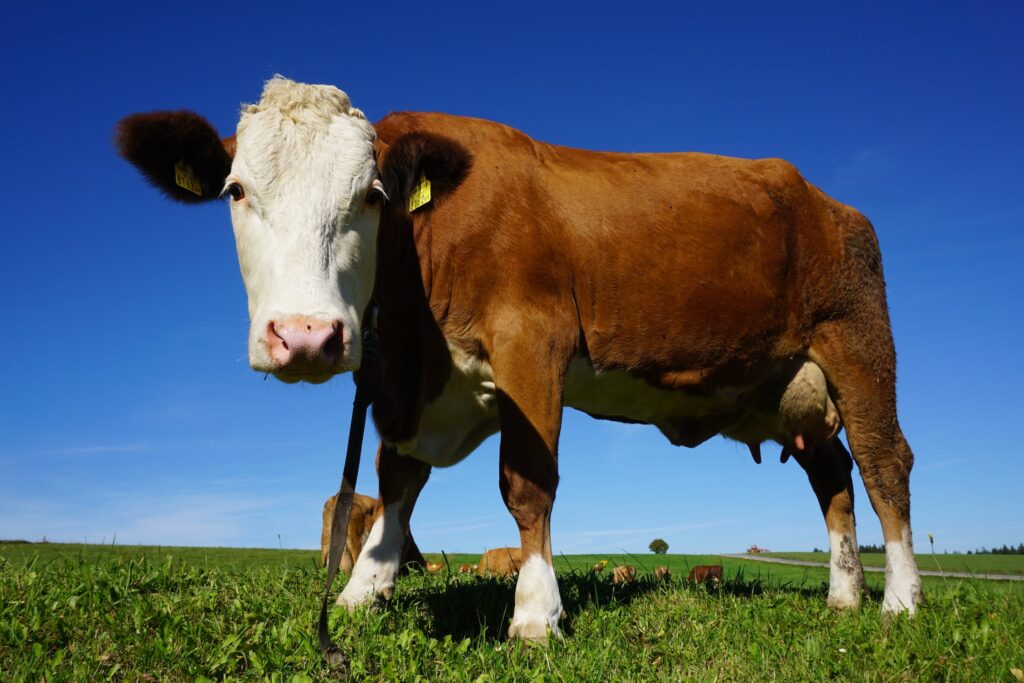As individuals look for healthier and more sustainable nutritional options, there has been a rise in interest in organic and minimally processed foods in recent years. Organic raw milk is one such food item that has attracted notice. This essay will go into the world of organic raw milk and explore its health benefits and positive effects on the environment.
Understanding Organic Raw Milk

The term “organic raw milk” describes milk that hasn’t been pasteurized and has been received straight from cows, goats, or other dairy animals. This preserves the milk’s unaltered, natural condition.
Nutritional Richness

- Abundance of Nutrients: With important vitamins and minerals including calcium, vitamin D, B vitamins, and magnesium, raw organic milk is a nutritious powerhouse. These vitamins and minerals are essential for preserving bone health, boosting the immune system, and improving general health. being.
- Beneficial Enzymes and Probiotics: Probiotics, or helpful bacteria, are naturally occurring enzymes found in raw milk. For certain people, including those who are lactose intolerant, these enzymes help with lactose digestion, making it easier to handle. Additionally beneficial to the immune system and the intestines, probiotics support good health.
- Healthy Fats: Conjugated linoleic acid (CLA) and omega-3 fatty acids are among the healthy fats found in raw milk. These fats have been linked to a lower risk of heart disease and may have anti-inflammatory effects.
- Unaltered Protein: The heat treatment used in pasteurization has no effect on the protein in raw milk, maintaining its integrity, which may be advantageous for enhancing protein absorption.
Environmental Benefits

- Reduced Energy Consumption: It takes a lot of energy to pasteurize milk, which involves boiling it to kill microorganisms. You may lessen the negative effects of energy-intensive processing on the environment by choosing raw milk.
- Support for Local Dairy Farms: Purchasing raw milk can help small-scale local dairy farmers. These farms frequently prioritize sustainable operations, compassionate animal treatment, and the use of antibiotics and hormones in moderation.
- Minimized Packaging Waste: Raw milk generates less plastic waste than commercially processed milk packed in plastic cartons since it is frequently accessible in reusable glass containers or straight from local farmers.
Safety Considerations

While raw milk offers numerous benefits, it’s crucial to acknowledge potential safety concerns. Raw milk can harbor harmful bacteria such as E. coli and Salmonella, which may lead to foodborne illnesses. To mitigate these risks, it’s essential to procure organic raw milk from reputable, certified producers and adhere to proper handling and storage guidelines. Moreover, individuals with compromised immune systems, expectant mothers, and young children should consult healthcare professionals before considering raw milk consumption.
Conclusion
Organic raw milk emerges as an appealing choice for individuals seeking nutrient-dense, minimally processed dairy products while being mindful of the environmental impact of their dietary choices. Balancing the nutritional advantages with safety considerations is essential. If you decide to incorporate organic raw milk into your diet, do so responsibly by sourcing it from trustworthy providers who prioritize safety and sustainability. If you liked this, then you might also like growing your own food sustainably.





